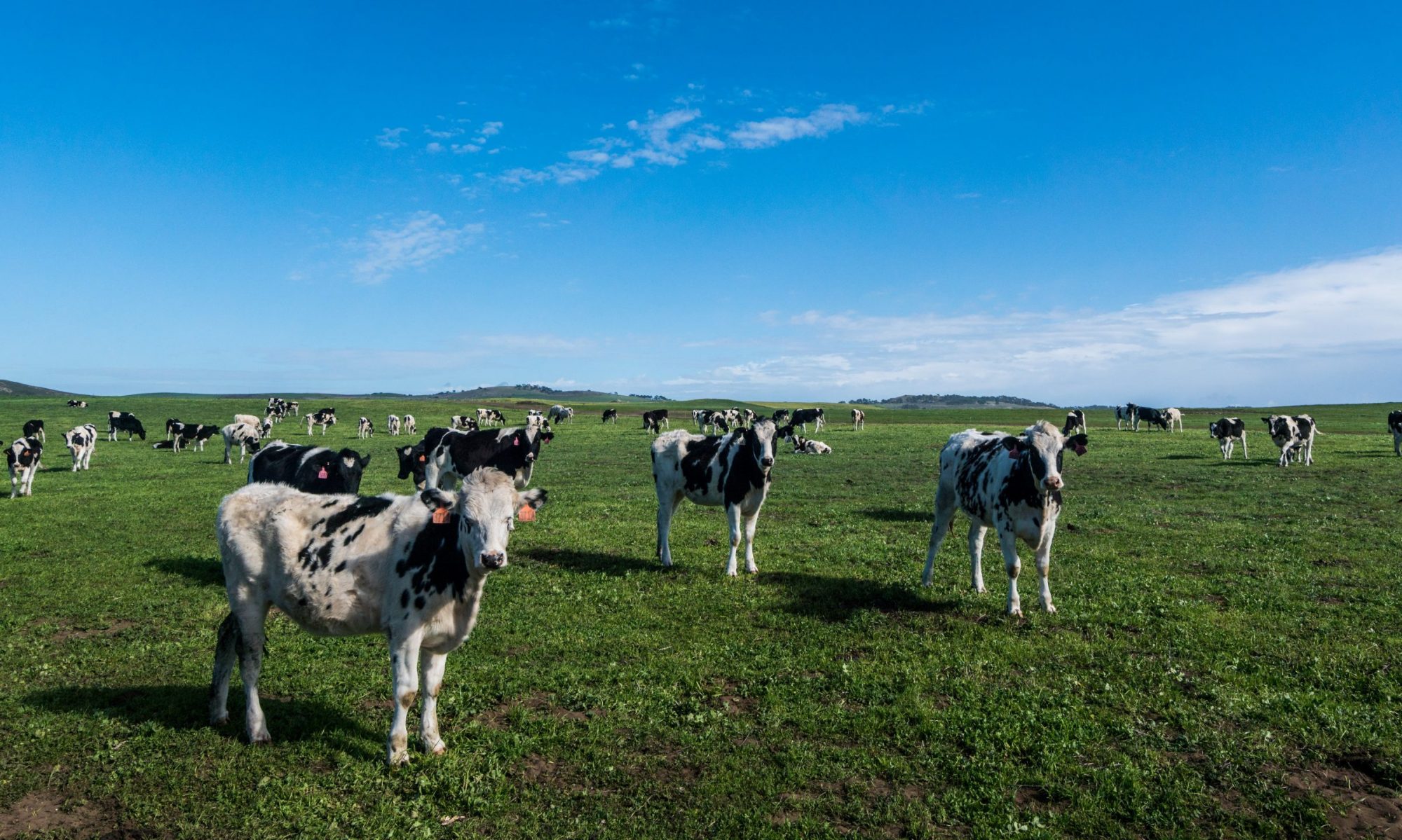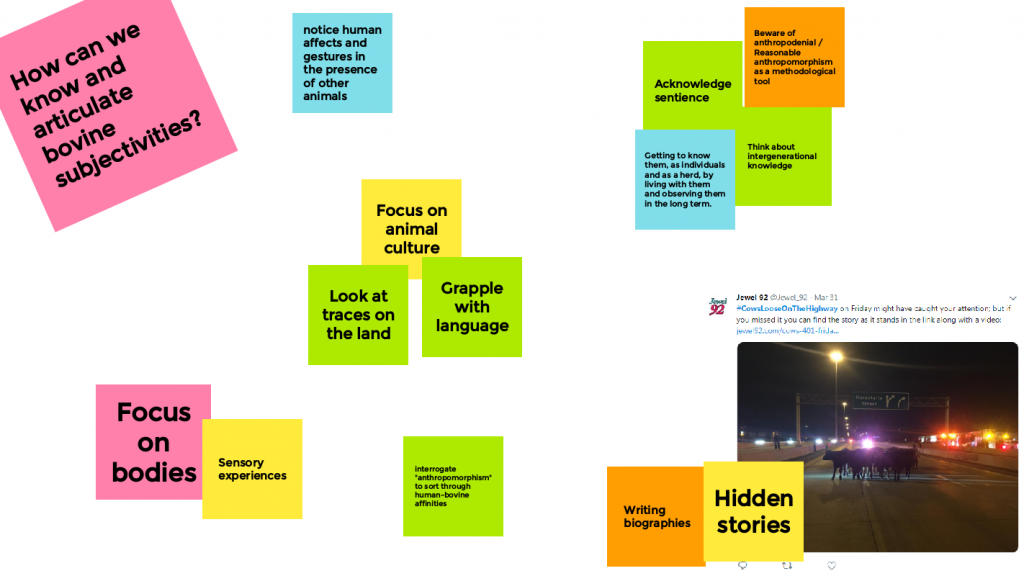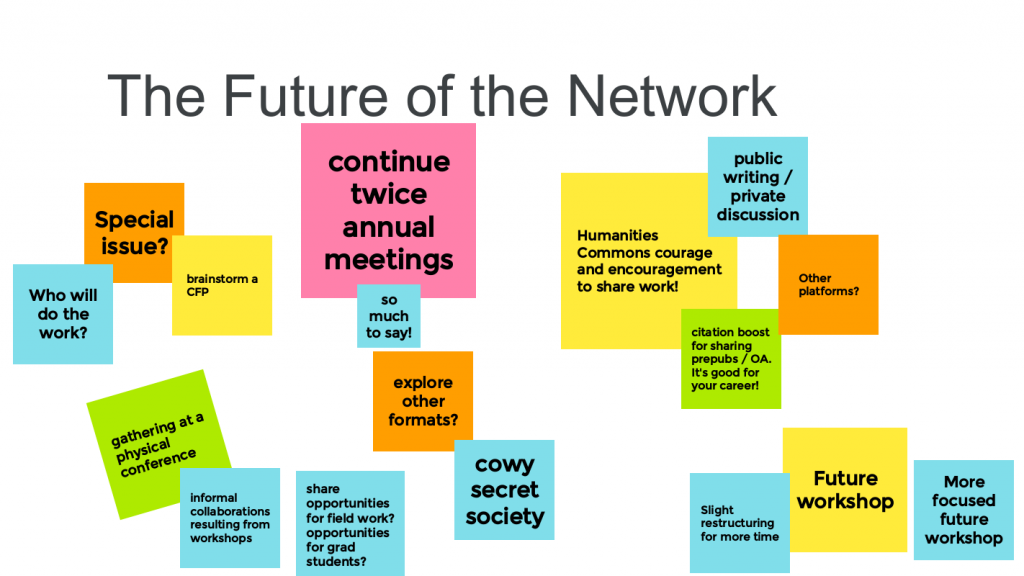June 5, 6, 7 2023
Applications due April 15, 2023
From the 5th to the 7th of June 2023, the Bovine Scholarship Network is hosting its 3rd Bovine Scholarship Workshop: a multi-day, online, international gathering for researchers interested in and contributing to understandings of bovines in the social sciences, humanities, and the arts. The theme for this workshop is Methods for Bovine Scholarship. This hybrid event will be hosted by the University of Nebraska-Lincoln, convened by Scout Calvert (UNL) and Roxane Gabet (Université de Liège) with support from co-founders of the Network (Andrea Petitt and Claudia Towne Hirtenfelder).
As the interdisciplinary study of animals has grown, methods from component disciplines have been taken up by bovine scholars, while new methods have been generated from within animal studies. We invite presentations to explore practices and research methods for bovine scholarship. What approaches have been fruitful for your work in generating new knowledge of bovines and bovine relations in our more-than-human history, culture, and environments? What barriers have you faced in your investigations and how have you adapted, altered, developed, or dropped methods to engage in your research with bovines?
As with previous Bovine Scholarship Workshops, organizers seek to maximize participation of all attendees. With this workshop, we invite presentations in a variety of formats, the details of which can be found below:
- Flash talk (5 min)
- A flash talk is designed to be provocative – broad strokes that invite discussion or entice BSW participants to learn more, or focusing on one narrow concept or idea to explode or explore. We encourage presenters to pre-record their flash talk to share in advance; some talks may be delivered live. After all have presented, we will have a joint discussion.
- Project update (10 min)
- This is for on-going work or work that is in development that the presenter would like some help thinking through. These will be done at the workshop with discussion periods immediately following them
- Traditional presentation (15 min) and panel discussion
- This will be done the same as the previous workshops whereby presenters have 15 minutes to present work and a panel discussion will follow.
- Panel discussant
- By invitation or by request, based on your research interest statement.
To apply please fill in this Google Form. You will be asked to submit your contact details, the title of your presentation, a 200-300 word abstract, and a 100-250 bio. Please note that you do not need to have an affiliated paper with your abstract and that works in progress are welcome. If you are only interested in participating (but not presenting) your application should include a 200-250 word motivation for why you would like to attend. You will also be asked to select your preferred time zones and these will be used to determine the exact timing of the workshop itself, with a slight privileging of UTC-5. The deadline for all applications is the 15th of April 2023.
If you would like to stay abreast of these calls please join the Bovine Scholarship Network. The goals of the network are as follows:
- Knowledge sharing and networking: To create a space in which scholars working on similar subject matter but from different disciplinary backgrounds and social geographies can work with and learn from one another, charting a way for future collaboration and knowledge production.
- Capacity Building: To give scholars the opportunity to learn from and work closely with other scholars with similar research interests.
- Collaboration: To forge new avenues of collaboration between individuals, departments and universities.
- Knowledge Innovation: To expand and consider different ways of knowing and thinking about multi-species relations and stories.
- Knowledge Production: To work towards the creation of an edited volume, and to also develop some popular science content on the topic.
We look forward to your application and to meeting you at the workshop!
Please email any questions to bovinescholarshipnetwork@gmail.com
Kindest regards,
The Workshop Organizing Team









